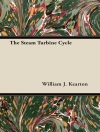PAAMS, the International Conference on Practical Applications of Agents and Multi-Agent Systems is an international yearly stage to present, to discuss, and to disseminate the latest advances and the most important outcomes related to real-world applications. It provides a unique opportunity to bring multi-disciplinary experts, academics and practitioners together to exchange their experience in the development of Agents and Multi-Agent Systems. This volume presents the papers that have been accepted for the 2010 edition. These articles capture the most innovative results and this year’s advances. Each paper has been reviewed by three different reviewers, from an international com-mittee composed of 82 members from 26 different countries. From the 66 submissions received, 19 were selected for full presentation at the conference, and 14 were accepted as short papers. Moreover, PAAMS’10 incorporated special ses-sions and workshops to complement the regular program, which included 85 ac-cepted papers.
Inhaltsverzeichnis
Keynote.- Multiagent Modelling and Simulation as a Means to Wider Industrial Deployment of Agent Based Computing in Air-Traffic Control.- Real-Time and Personalisation.- Real Time Learning of Behaviour Features for Personalised Interest Assessment.- A GPU-Based Multi-agent System for Real-Time Simulations.- CLIC: An Agent-Based Interactive and Autonomous Piece of Art.- Collaborative Information Extraction for Adaptive Recommendations in a Multiagent Tourism Recommender System.- An Architecture for the Design of Context-Aware Conversational Agents.- Modelling and Computation.- A Computational Model on Surprise and Its Effects on Agent Behaviour in Simulated Environments.- Enhanced Deliberation in BDI-Modelled Agents.- Cooperative Behaviors Description for Self-* Systems Implementation.- Collaborative Dialogue Agent for COPD Self-management in AMICA: A First Insight.- Methodology and Engineering.- Application of Model Driven Techniques for Agent-Based Simulation.- Using ICARO-T Framework for Reactive Agent-Based Mobile Robots.- REST-A: An Agent Virtual Machine Based on REST Framework.- Detection of Overworked Agents in INGENIAS.- Mobile Agents in Vehicular Networks: Taking a First Ride.- CRISIS Management and Robots.- A Multi-Agent System Approach for Interactive Table Using RFID.- Forest Fires Prediction by an Organization Based System.- Self-adaptive Coordination for Robot Teams Accomplishing Critical Activities.- A Cooperative Communications Platform for Safety Critical Robotics: An Experimental Evaluation.- A Real Time Approach for Task Allocation in a Disaster Scenario.- Development and Evaluation.- ASGARD – A Graphical Monitoring Tool for Distributed Agent Infrastructures.- Comparing Three Computational Models of Affect.- A Generic Architecture for Realistic Simulations of Complex Financial Dynamics.- Sin City 2.0: An Environment for Exploring the Effectiveness of Multi-agent Learning Techniques.- A Tracing System Architecture for Self-adaptive Multiagent Systems.- Search and Problem Solving.- An UCT Approach for Anytime Agent-Based Planning.- Elitist Ants Applied to the Undirected Rural Postman Problem.- Distributed Bayesian Diagnosis for Telecommunication Networks.- Solving an Arc-Routing Problem Using Artificial Ants with a Graph Transformation.- Ambient and Green-by Systems.- Using Situation Calculus for Normative Agents in Urban Wastewater Systems.- Organization Nesting in a Multi-agent Application for Ambient Intelligence.- Advantages of MAS for the Resolution of a Power Management Problem in Smart Homes.- A4VANET: Context-Aware JADE-LEAP Agents for VANETS.- Adaptive Multi-agent System for Multi-sensor Maritime Surveillance.












